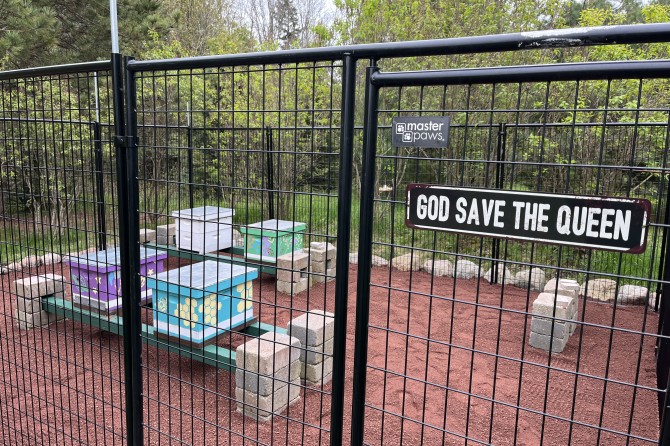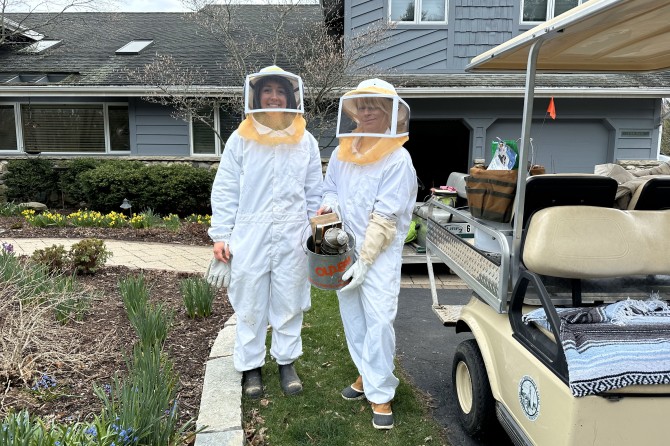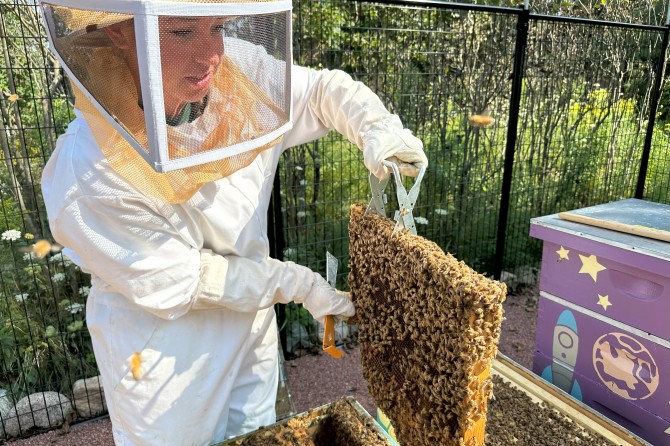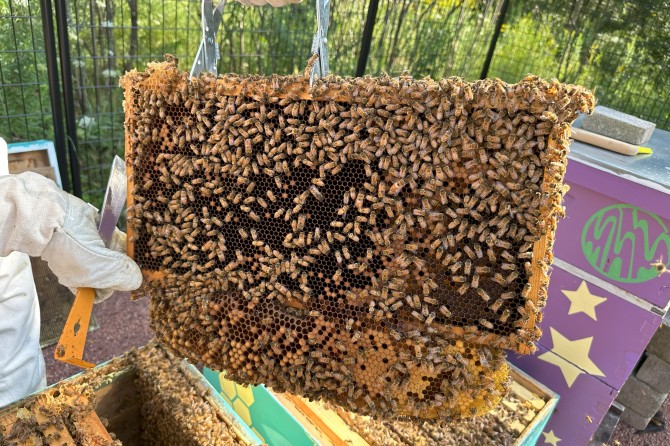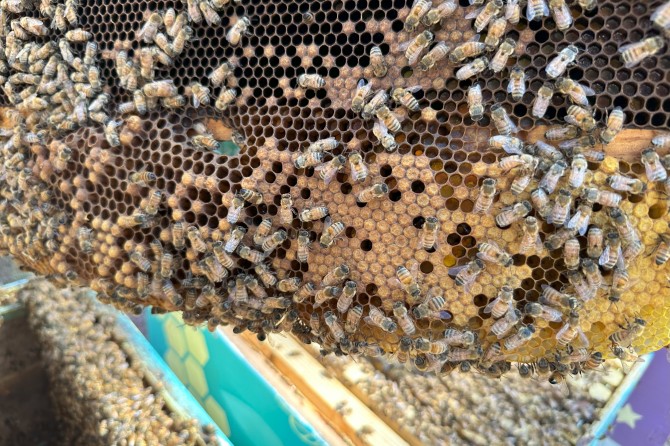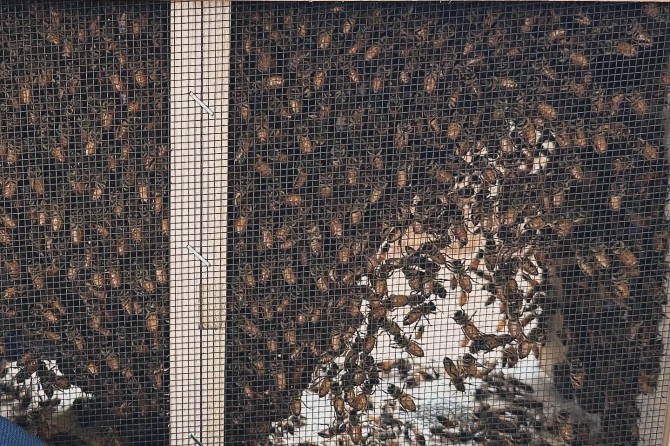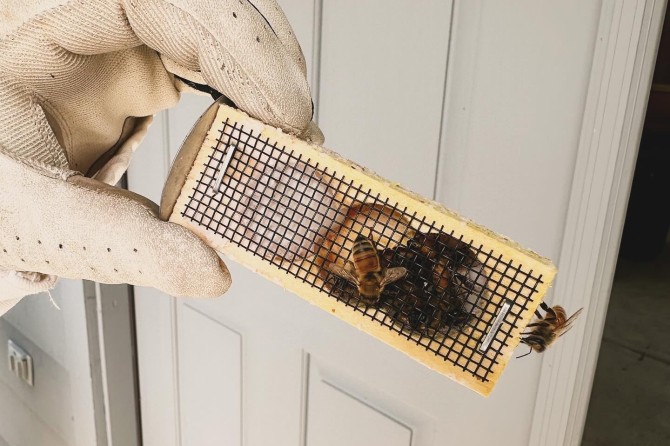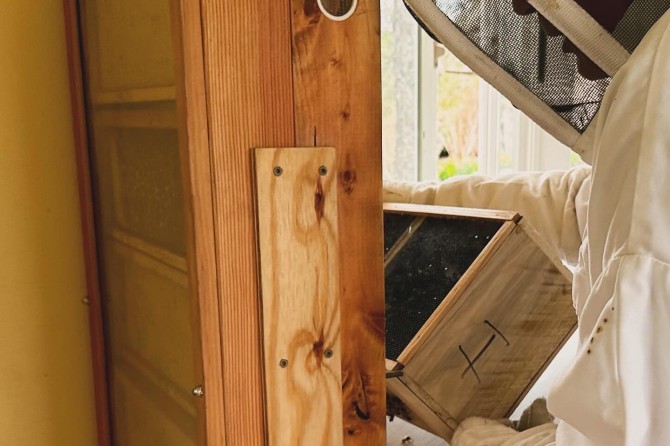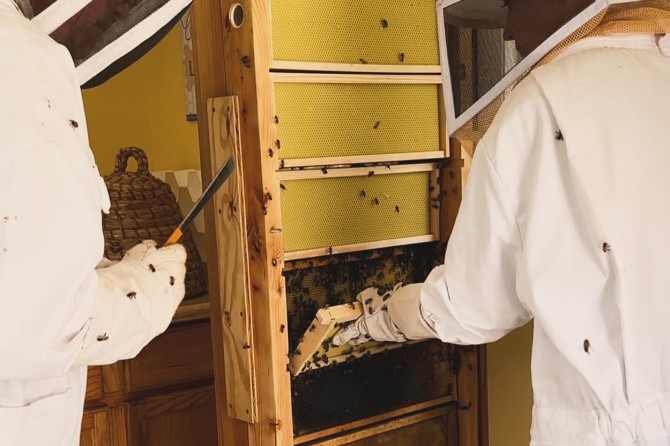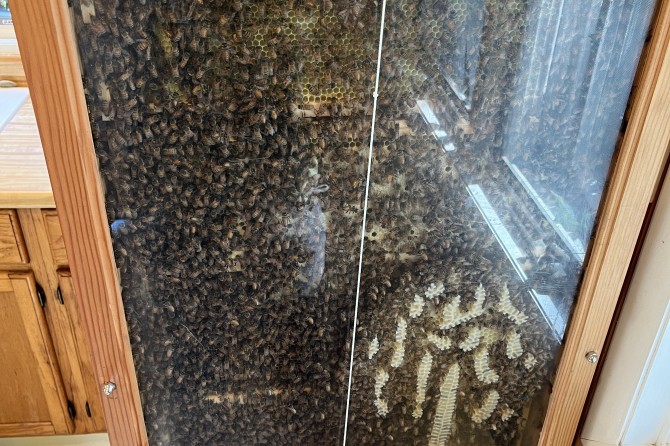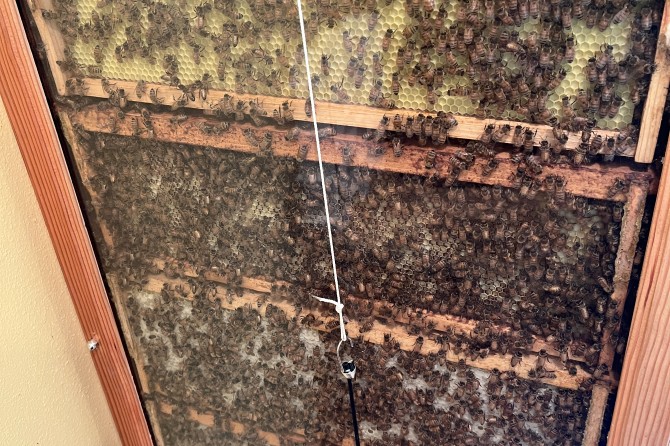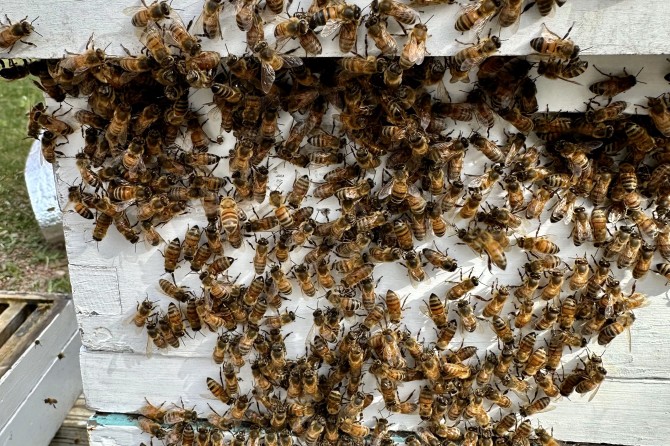Apiaries
An apiary, also known as a "bee yard", is a location where beehives of honeybees are kept. The base of the word comes from the Latin word "apis" meaning "bee", leading to "apiarium" or "beehouse" and eventually "apiary."
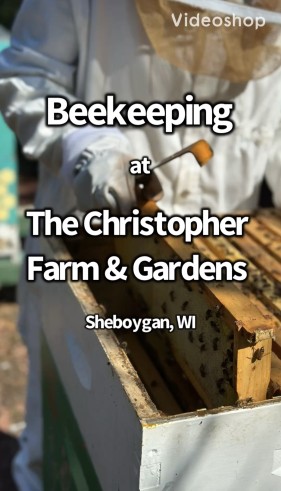 Click on the video to view a montage of a few of our most memorable beekeeping moments!
Click on the video to view a montage of a few of our most memorable beekeeping moments!
We chose to develop our apiaries to fortify the pollination of our crops and plants throughout the gardens, and also to use some of the generated excess honey in our recipes, of course! Each year, we maintain multiple hives in our Tree Nursery Apiary, located a few hundred yards away from the main botanical gardens. We also tend to one colony in an Observation Hive, where a colony is encased in a glass-sided box to be used for education with visiting students, located in our Bee Shed Apiary.
Our Honeybee Supplier
We have received packages, nucleus "nucs" beehives and mated queens from Heritage Honeybee, LLC, located near Sullivan, WI. They have supplied us with healthy colonies for years! Check out their website by clicking the honeybee below.
The Benefits of Beekeeping
We have seen marked increases in produce yields on years where our beehives are full and healthy. After all, 75% of the crops we eat need to be pollinated by an animal or insect to develop fruit. We have seen our own crop yields increase 25-40% since the addition of beehives to The Christopher Farm & Gardens property. Honeybees seek pollen from one type of plant at a time making them incredibly efficient at pollinating crops, jumping from flower to flower of the same species before heading back to the hive to offload their pollen & nectar.
Observational Beehives
How do you install 3 lbs. of bees into a glass box? Very carefully!
An Observation Hive is a great educational tool that learners can use to observe the inner workings and behaviors of a colony of honeybees. Our school field trips often include a trip into the "Bee Shed" to see what the bees are up to and to learn about the career and hobby of Beekeeping.

